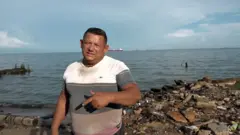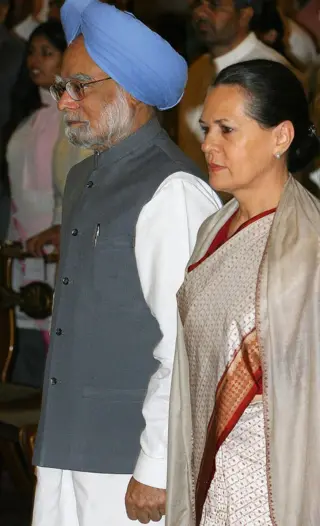Gustavo Ocando AlexReporting from Maracaibo, Venezuela for BBC News Mundo
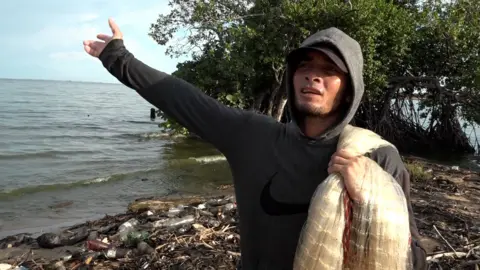 Gustavo Ocando Alex
Gustavo Ocando AlexWilder Fernández has caught four good-sized fish in the murky waters of a small bay north of Lake Maracaibo.
The contents of his net will serve as dinner for his small team before they set out to go fishing again in the evening.
But this daily task is a job he has recently become scared of doing.
After 13 years as a fisherman, Mr Fernández confesses that he now fears his job could turn lethal.
He is afraid he could die in these waters not at the hands of a night-time attacker – a threat fishermen like him encountered in the past – but rather, killed in a strike launched by a foreign power.
“It’s crazy, man,” he says of the deployment of US warships, fighter jets, a submarine and thousands of US troops in waters north of Venezuela’s coast.
The US force patrolling in the Caribbean is part of a military operation targeting suspected “narco-terrorists”, which according to the White House have links to the Venezuelan government led by Nicolás Maduro.
Since 2 September, the US has carried out a number of strikes against what it labelled “narco-boats”, in which at least 27 people have been killed.
The US has accused those killed of smuggling drugs but has so far not presented any evidence. Experts have suggested the strikes could be illegal under international law.
Tensions between the US and Venezuela escalated further on Wednesday when US President Donald Trump said that he was considering strikes on Venezuelan soil.
He also confirmed that he had authorised the CIA to carry out covert operations inside Venezuela.
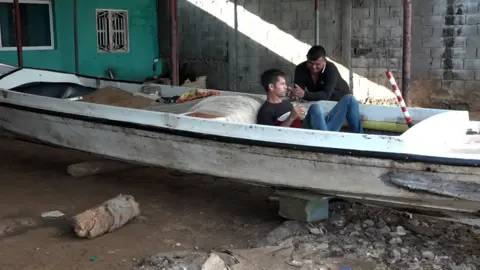 Gustavo Ocando Alex
Gustavo Ocando AlexMr Fernández is across the latest news.
Even though the strikes are said by the US to have happened thousands of kilometres from where he fishes, his wife has been trying to convince him to leave Lake Maracaibo.
Every day she begs him to leave his fishing job. “She tells me to look for another job, but there’s nowhere to go,” he explains.
He does not rule out that his boat could be hit “by mistake”.
“Of course it worries me, you never know. I think about it every day, man,” the father of three says.
One day after BBC Mundo spoke to Mr Fernández, Trump announced that “six narco-terrorists” had been killed in the latest US strike in international waters off the Venezuelan coast.
Trump added that “intelligence confirmed the vessel was trafficking narcotics, was associated with illicit narcoterrorist networks”.
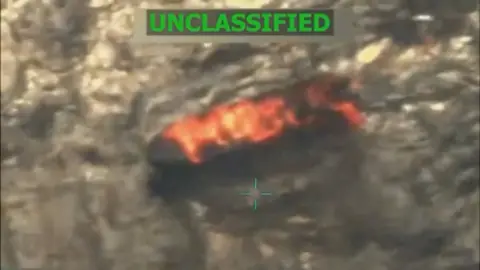 Reuters
ReutersThe Trump administration accuses Maduro of leading the Cartel of the Suns drug trafficking gang and is offering a $50m (£37m) reward for information leading to his capture.
Maduro, whose legitimacy as Venezuela’s president is internationally contested after disputed elections last year, has denied the cartel accusations. He has dismissed them as an attempt by the White House to oust him from office.
In his most recent statement, he appealed on TV for peace with the US.
Meanwhile, Venezuela’s Defence Minister General Vladimir Padrino has warned Venezuelans to prepare “for the worst”.
Speaking after the incursion on 2 October of five F-35 fighter jets in Venezuelan airspace, Gen Padrino said that his nation was facing a “serious threat” which he warned could involve “aerial bombings, naval blockades, undercover commandos landing on Venezuelan beaches or in the Venezuelan jungle, swarms of drones, sabotage, and targeted killings of leaders”.
Venezuela also denounced the “mounting threats” from the US at the United Nations Security Council last week.
In response, the US representative at the UN meeting, John Kelley, stressed that his country “will not waver in our action to protect our nation from narcoterrorists”.
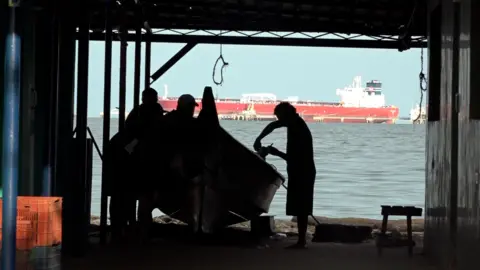 Gustavo Ocando Alex
Gustavo Ocando AlexMeanwhile, the attacks in the Caribbean have undermined the security of the fishermen in Venezuela, laments Jennifer Nava, spokeswoman for the Council of Fishermen in El Bajo, in Venezuela’s Zulia state.
Ms Nava tells BBC Mundo that people employed in the fishing industry fear being hit in the crossfire between US forces and alleged drug traffickers.
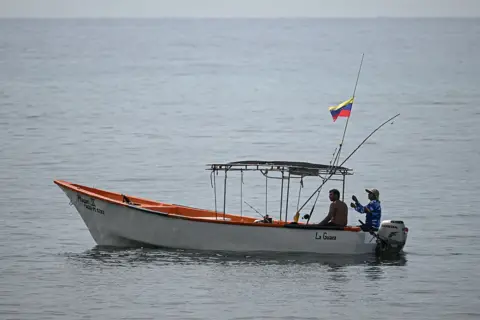 AFP vía Getty Images
AFP vía Getty ImagesMs Nava argues that the added risks fishermen are facing could drive some of them into the arms of drug and arms smugglers looking to recruit people to transport their illicit shipments.
“Some of these guys are approached by traffickers,” she explains, adding that a downturn in the fishing industry could leave fishermen more vulnerable to those approaches.
There is certainly a sense of nervousness among the fishermen of Lake Maracaibo.
Most of the crew of two small fishing boats owned by Usbaldo Albornoz refused to work when news of the US strikes broke.
Mr Albornoz, who has been in the fishing business for 32 years, describes the situation as “worrying”.
“The guys didn’t want to go out to sea to fish,” he told BBC Mundo on the beach in San Francisco de Zulia, which sits at the northern shore of Lake Maracaibo where it meets the Gulf of Venezuela.
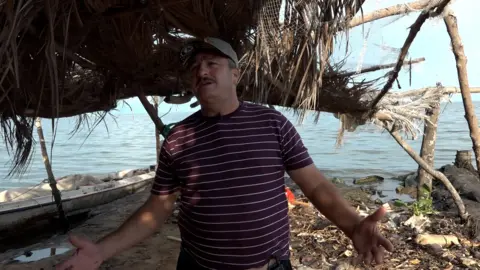 Gustavo Ocando Alex
Gustavo Ocando AlexThe fear of being hit by a US strike is the the latest of a long list of risks he and his men face, including pirates, oil spills and a decline in earnings in recent years, Mr Albornoz explains.
In a leaked memo recently sent to US lawmakers, the Trump administration said it had determined it was involved in a “non-international armed conflict” with drug-trafficking organisations.
The White House described the attacks on the boats in the Caribbean as “self-defence” in response to criticism by legal experts who said they were illegal.
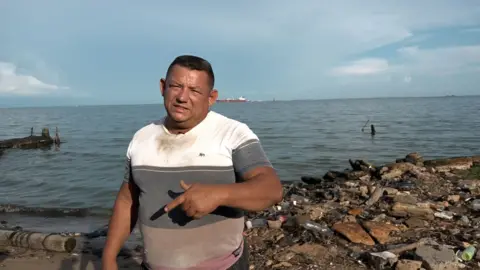 Gustavo Ocando Alex
Gustavo Ocando AlexBut beyond the fear many are experiencing, there is also a feeling of defiance.
At the end of September, hundreds of fishermen on dozens of boats took to Lake Maracaibo in a show of support for the Maduro government and in protest at the US military deployment.
José Luzardo was one of them. A spokesman for the fishermen of El Bajo, he has been fishing for almost 40 years and accuses the US of “pointing its cannons towards our Venezuela”.
He says he is not afraid and would give his life to defend his homeland.
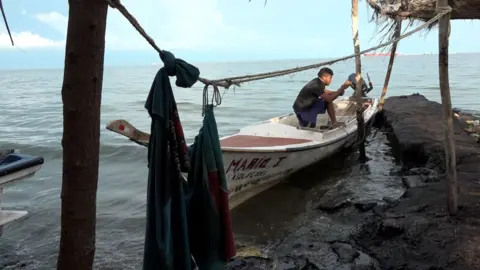 Gustavo Ocando Alex
Gustavo Ocando Alex“The Trump administration has us cornered. If we have to lay down our lives to defend the government, then we’ll do it, so that this whole shebang is over,” he says.
He insists that what the fishermen want is “peace and work”, not war, but gets visibly angry when he refers to the “military barrier” he says the US has deployed in the Caribbean.
Last month, the Venezuelan government mobilised members of the militia and called on those who had not signed up to the civilian force to do so.
More than 16,000 fishermen followed his call, according to fisheries minister Juan Carlos Loyo.
Luzardo, who has been fishing since he was 11 years old says he will “be ready for battle, wherever needed”.
“If they [the US] want to kill us, then so be it, but we’re not afraid.”
